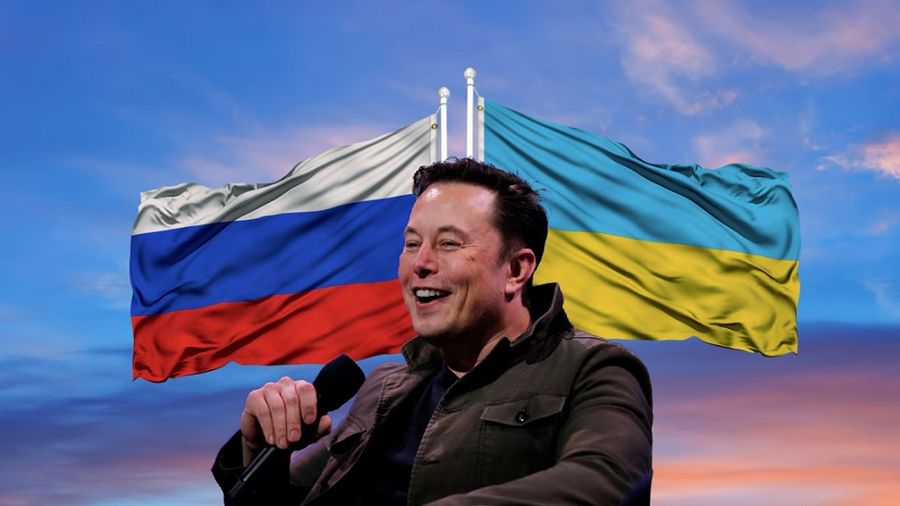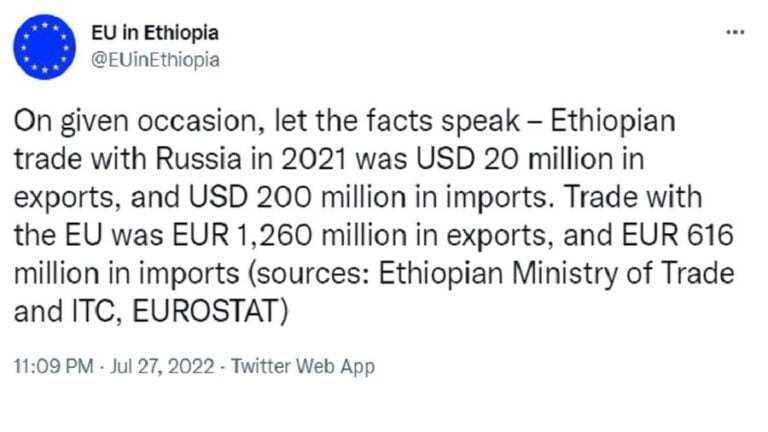Elon Musk’s Outsized Role in the Ukrainian Conflict Presents Unique Opportunities
Had Musk not been such a passionate supporter of Kiev and literally put his money where his mouth is by subsidizing its military with tens of millions of dollars thus far before pragmatically realizing that this is financially unsustainable from a business perspective, then his well-intended peace proposal and its consequent effect on reshaping global perceptions about the conflict would have fallen flat.
The whole world is talking about Elon Musk nowadays, the richest person on the planet who’s best known for being the CEO of Tesla, SpaceX, and other visionary technological companies. His recent proposal for peacefully resolving the Ukrainian Conflict provoked the full wrath of that crumbling former Soviet Republic’s Western supporters, who maliciously accused him of being a so-called “Russian agent”. That false notion was speciously reinforced in the minds of many after he requested the Pentagon to pick up the tab for the Starlink satellite internet terminals that he donated to Kiev.
This development shortly followed the furor over his “politically inconvenient” but objectively well-intended efforts to prevent the Ukrainian Conflict from escalating to the point of a Russian-US nuclear war. Eurasia Group founder Ian Bremmer scandalously claimed in the interim that Musk supposedly told him that he spoke with President Putin prior to posting a related poll on Twitter, which the multibillionaire swiftly denied. Nevertheless, many were still left with the impression that this visionary isn’t as solidly in support of Kiev like they initially thought.
Considering everything that’s recently unfolded, there’s no doubt that Musk has come to play an outsized role in the Ukrainian Conflict. Simply by virtue of being the richest person on the planet who’s presently once again in the process of purchasing Twitter, the world’s top social media platform, he already has immense global influence. Factoring in the indispensable role that Starlink has for maintaining Kiev’s military communications throughout the course of the US-led NATO proxy war on Russia as well as his well-intended peace proposal, it’s clear that he’s a force to be reckoned with.
This presents unique opportunities that nobody could have expected would emerge when the latest phase of this long-running conflict began in late February. For starters, he’s presented himself as a superhero of sorts through his decisive military-technological intervention in donating so many Starlink terminals to Kiev, though it’s now evident in hindsight that he naturally expected to turn a profit further down the line and wasn’t interested in indefinitely subsidizing it to the tune of tens of millions of dollars a year. There’s nothing wrong with that, and it’s actually a clever business plan.
Military contracts like the sort that he envisages are big moneymakers, plus they could come with indirect policymaking influence, not to mention prestige. Just like the arms companies connected with the US’ military-industrial complex (MIC) are widely regarded as exerting some sway over public officials, especially through their funding of those Beltway think tanks that are known to be read by them, so too could Musk do something similar. This observation segues into him partially being driven by prestige-related motivations, especially those connected to his superhero image in recent years.
What’s so intriguing about Musk is that he sincerely wants to make the world a better place, even if his proposals – whether the substance or even spirit thereof – aren’t shared by all his supporters. That explains why he leveraged his unparalleled influence on Twitter to share his recent peace proposal, which regrettably triggered countless folks from the US-led West’s Golden Billion, including that New Cold War bloc’s Ukrainian proxies. Regarding the last-mentioned, the Ukrainian Ambassador to Germany infamously told Musk to “f**k off”, which he sarcastically suggested explained his latest Starlink moves.
The reality, as CNN revealed, was that SpaceX had already sent the Pentagon a letter prior to that online exchange asking for it to pick up the tab. His business plans therefore obviously weren’t a reaction to that foul-mouthed diplomat even though he seemingly had fun by playfully suggesting that they were in order to make a principled point about not proverbially biting the hand that’s literally supplying one’s side with their indispensable satellite communications. The overreaction that his peace proposal had also served an additional purpose too, even if only inadvertent, and that was to expose the lust for war.
Musk is serious about preventing the Ukrainian Conflict from escalating to the point of a Russian-US nuclear war, which he almost naively assumed was shared by everyone seeing as how all people have a self-evident stake in perpetuating their survival by averting the apocalypse. He must therefore have been sincerely shocked to see the toxic hatred that his well-intended peace proposal generated from the same side whose military he’s been hitherto subsidizing to the tune of tens of millions of dollars. One can only imagine the impact that this had on his evolving worldview.
What’s important to pay attention to in this context is that all of this unfolded in the public sphere on social media, which thus enabled everyone to see how much many of Kiev’s supporters truly lust for war, even if that entails dangerously flirting with a nuclear apocalypse. That powerfully counteracted the carefully cultivated image about this side of the Ukrainian Conflict that’s been artificially manufactured by the US-led Western Mainstream Media (MSM) and key influencers across academia, civil society, the media, the political community, and think tanks, et al.
It’s here where Musk’s already outsized influence becomes even greater since it was ironically none other than one of Kiev’s most globally famous supporters – whose donations have meaningfully enhanced its military capabilities in ways that not even the Pentagon itself could do despite representing the most powerful armed forces in the history of humanity – who exposed them. The unimaginable sum of money that was poured into this worldwide perception management campaign in support of that side was immediately made worthless after he accidentally triggered its supporters.
What’s so significant about this is that it marks an inflection point in the information warfare dimension of the Ukrainian Conflict whereby global perceptions have unmistakably shifted in a direction that’s “politically inconvenient” for elite warmongers and their crazed supporters. That was already an emerging trend prior to his poll but is now irreversible, thus derailing the unprecedented efforts to manipulate the global public and especially those in the Golden Billion into supporting this proxy war despite the cost, including the credible risk of an apocalyptic Russian-US nuclear war.
Had Musk not been such a passionate supporter of Kiev and literally put his money where his mouth is by subsidizing its military with tens of millions of dollars thus far before pragmatically realizing that this is financially unsustainable from a business perspective, then his well-intended peace proposal and its consequent effect on reshaping global perceptions about the conflict would have fallen flat. Instead, precisely because of the superhero image that he’s been associated with in recent years and which was bolstered by his aforementioned subsidization, he’s objectively deemed as trustworthy by many.
It’s for these reasons that the malicious allegations about him being a so-called “Russian agent” don’t stick and are actually counterproductive to those who spew them since they only further expose such forces as the crazed warmongers that they are. Without meaning to, Musk shattered the MIC-MSM axis and thus liberated literally millions of minds across the world who now finally see the truth about these perception management operations as they objectively exist, which thus naturally makes them more susceptible to the suggestion of reviving the peace process in order to prevent this conflict’s escalation.
This couldn’t have been timelier either since Turkish President Erdogan is seeking to do exactly that after having previously hosted earlier talks that ultimately failed due to what Ukrainian media itself reported was the pernicious influence of former British Prime Minister Johnson in sabotaging that process. To be clear, Musk’s financially reasonable business calculations with respect to Starlink and his famous Twitter peace poll weren’t coordinated with that world leader, though this pure coincidence nevertheless unwittingly facilitates the latter’s well-intended efforts that the world’s richest person shares.
To wrap it all up, Musk’s outsized influence over the Ukrainian Conflict can be summarized as a combination of his indispensable subsidization of Kiev’s military communications networks and the impact that his peace proposal had on shattering the MIC-MSM axis’ warmongering perception management operations. As luck would have it, this was all perfectly timed and coincides with another push by President Erdogan to revive the peace process, which if successful, could solidify Musk’s legacy as a real-life superhero who might even have quite possibly averted a nuclear apocalypse in hindsight.







